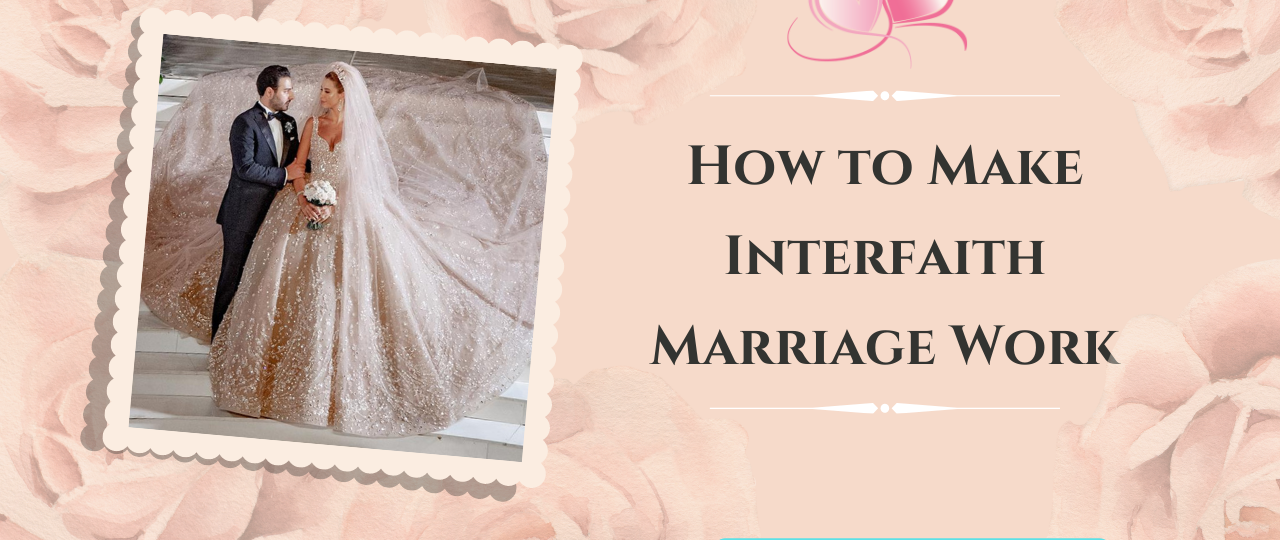Talking is good.
When interfaith couples are dating, their religion is the elephant in the room. No one wants to bring up religious differences because everyone wants to maintain romance and avoid arguments. When interfaith marriage comes up, couples can no longer ignore the elephant. "You love each other," says Reuben. "You won’t stop loving each other if you talk about your religion." Ideally, you and your spouse discussed your different religions and the role they would play in your marriage before the wedding. If you haven’t, however, now is the time to speak up and make some decisions about if and how religion will exist in your married life.
Educate yourself.
Learning about your spouse’s religion doesn’t mean you have to convert, says Jane Kaplan, author of Interfaith Families: Personal Stories of Jewish-Christian Intermarriage (Seabury Books, 2005)- Amazon.com. She adds that even if one spouse chooses to convert, knowledge of the faith being given up remains important. "There has to be respect and acknowledgment for the other person’s culture and traditions, even if the person is giving it up," says Kaplan.Ask your spouse about childhood memories of religious traditions. Reading about the religion is a good base, but Reuben warns, "Episcopalian for Dummies is not the same as how your partner relates to his or her Episcopalian faith." Attending services is another way to learn.
Test the waters.
Early in an interfaith marriage, says Reuben, couples are reluctant to make decisions about traditions because they’re afraid if they do something once it will mean doing it always. Trying different approaches to see what works for the two of you is the right thing to do, says Reuben. Your Christian wife might want to dye Easter eggs, while you, as a Jew, would like her to refrain from eating bread during Passover. Give it a shot, see what happens, and then discuss if this approach worked for you and should be incorporated into the next year’s celebration. If not, make the necessary compromises and changes.
Deal with the in-laws.
Interfaith marriages can be particularly hard on the couples’ parents, who often feel like the bearers of the religion, says Reuben. As a result, they create conflict either intentionally or unintentionally. It is up to you and your spouse to inspire respect for each other’s religious differences. Communicate with each other about how religion will be handled and then communicate these decisions to the others.Often, problems come up because one person ends up giving up certain traditions. The majority, says Kaplan, who give up these traditions don’t usually miss the religion as much as the family time, the food, etc. Religion often brings with it an entire culture and a link between family members.
Never force anyone.
When Kaplan talked to interfaith families for her book, she found the most divorces happened when someone converted. “Converting to another religion just for marriage doesn’t usually hold up so well,” says Kaplan. Conversion works if the person taking on a new religion truly believes in this other faith and is willing to give up the beliefs that he or she had growing up. This must be considered carefully, and the final decision must come from the person who will be converting.
Come up with a plan.
Certain milestones – the wedding, holidays and celebrations, and having children – bring up your religious differences. These instances are cause for discussion. You must confront them, speak your mind, consider the other’s feelings, and compromise. At the end of the day, you should have a plan about how to move forward. Will you have a Christmas tree? Will you both read passages from the Koran? Will your babies be baptized? One couple, in which the wife was a practicing Christian and the husband was Jewish, chose to raise their children Christian but the wife replaced the word "Christ" with "God" in all the prayers they said in their home to make her husband more comfortable, says Kaplan.
Keep talking.
"Conversations continue as details emerge," says Kaplan. "Things will come up constantly." Don’t bother being afraid of the troubles that might arise. Embrace them because, as Reuben points out, "the only road to intimacy is vulnerability."
"You’re each other’s best resource," he says. "See your differences as opportunities."




















